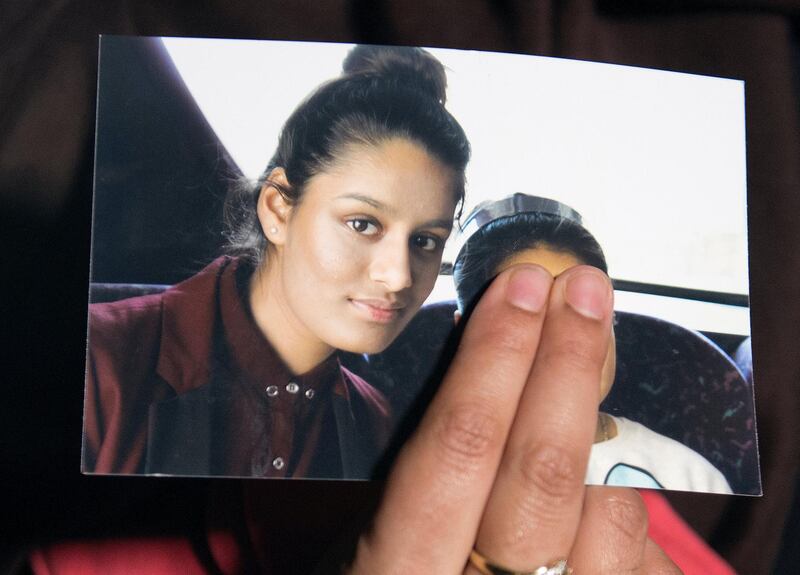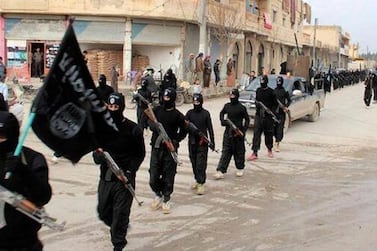ISIS runaway Shamima Begum allegedly helped to sew explosive vests on to suicide bombers.
Spy chiefs told British Prime Minister Theresa May and Home Secretary Sajid Javid that Ms Begum was seen sewing vests on to bombers so that the devices could not be removed without detonation, The Mail on Sunday reported.
It is not known whether the teenager willingly took part in the alleged acts.
"She was involved and her former comrades have grassed her," a senior intelligence source said. "She was stitching them into the vests."
A home office spokesman said that it did not comment on individual cases, but decisions to revoke a national’s citizenship “are based on all available evidence and not taken lightly”.
Ms Begum has said that she was “just a housewife” when she spent time in Raqqa, ISIS’s main Syrian stronghold until October 2017.
On April 2, the teenager asked to return to the UK after having her citizenship revoked, saying that she regretted leaving her east London home at the age of 15 to travel to Syria.
"Since I left Baghouz [in Syria], I really regretted everything I did and I feel like I want to go back to the UK for a second chance to start my life over again," she told The Times.
“I was brainwashed. I came here believing everything that I had been told while knowing little about the truths of my religion."
Ms Begum is staying in Al Roj at a smaller camp with about 600 people, and is being de-radicalised.
She was moved from a refugee camp near the village of Baghouz because of risk to her safety.
On Friday, a controversial new anti-terrorism law came into force in the UK, where Brits travelling to terrorism hotspots will face up to a decade in jail.
So far, the only area covered by the legislation is Idlib, a province in north-western Syria that is partly controlled by extremists linked to Al Qaeda.
But the law is expected to extend far wider, with a new list of areas being discussed by members of parliament this year.







